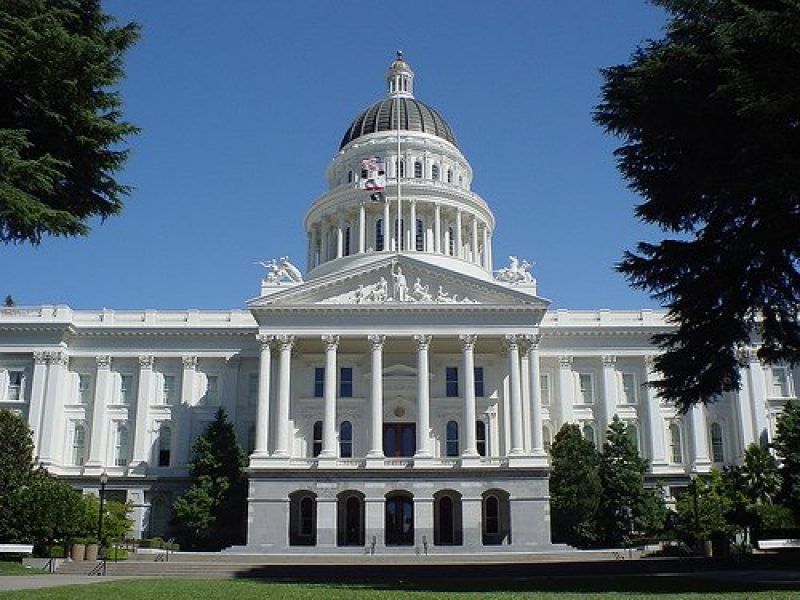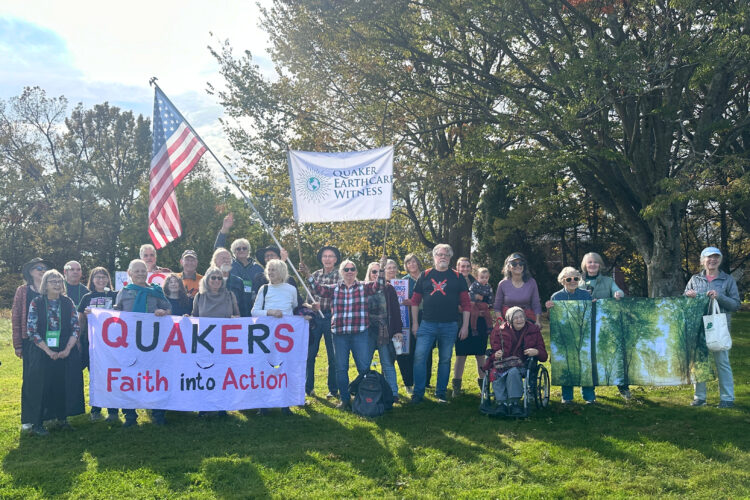Green in Sacramento

By Shelley Tanenbaum.
I TOOK A DAY OFF from QEW work to join ‘Green Lobby Day’ in my state capital, Sacramento. I highly recommend that you do the same in your state. As much as we want to see strong national legislation, significant government action, at least in the near term, is much more likely to take place at state and local levels.
I learned a tremendous amount about State politics in my first day on the job! I attended a lobby day on behalf of Friends Committee on Legislation, a 65-year-old Quaker presence in California. My role on the FCLCA board is to support their work on environmental justice.
I learned that there is a plethora of environmentally friendly bills being considered in my state, so many that it is hard to become an expert. Lesson No. 1: Choose one or two pieces of legislation to focus on and study up on these. Let others handle the rest.
Lesson No. 2: Compromise is key at the state level. We may not always like the watered-down version of a bill as it emerges, but that is often what it takes to get a bill passed.
A good example of this is the compromise that was reached early in the legislative session. California’s cap-and-trade program was extended until 2030, with the support of both unions and oil companies. Environmentalists and environmental justice advocates held out support until a companion bill was introduced that would improve air quality in disadvantaged neighborhoods. In the end, many climate advocates are pleased with the results; however, many others remain skeptical of both the effectiveness of cap and trade and whether neighborhood air quality will actually improve.
An example of where compromise was tried and failed is Senate Bill 100, which would have strengthened the state’s already impressive climate-change legislation by requiring a 50 percent reduction in greenhouse gas emissions by 2016, a 60 percent reduction by 2030, and a 100 percent reduction by 2045.
I saw in action how some members of the Legislature would not support the bill without the compromise language that was added to the bill for the 2045 goal. However, even this compromise was not enough to save the bill, and it was withdrawn due to lack of labor support. It is expected to be re-introduced in 2018.
One of my favorite visits was with a state Senator who is at risk of recall due to his positive vote for a gas tax. He is a Democrat in a traditionally Republican district, and narrowly defeated his opponent in 2016 (possibly the real reason for the recall attempt). He told us that if legislators were not willing to stand up for their principles, they didn’t belong in the Legislature.
I came away inspired by the possibilities for enacting meaningful legislation, inspired by my new colleagues, and inspired by those politicians who know how to make a deal on behalf of earthcare.
STATES THAT HAVE LOBBY GROUPS include California (FCLCA), Massachusetts (MAQLAN),Washington (FCWPP) and Indiana (IFCL).
Other states may have informal Quaker groups or “green” coalitions.
Let us know what is going on in your state, and we will distribute the information to the QEW network.

